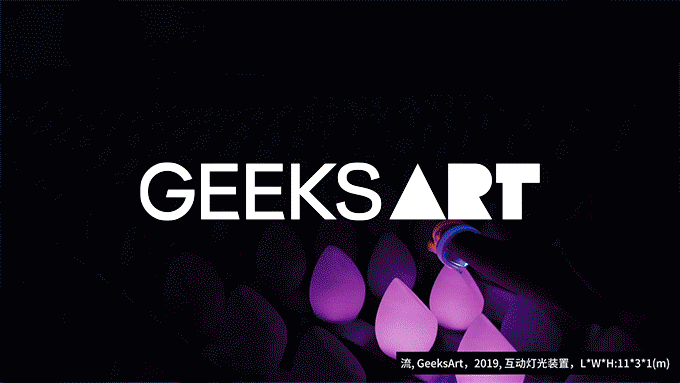奈九居酒屋位于南京市秦淮区国创园,地处工业老厂房改造的文创产业园的临街区位,辐射大量年轻办公人群、探店群体及周边社区居民。奈九始于2014年的陕西西安,其品牌重视日料仪式精神探索与餐厅环境独特营造,深受年轻受众的喜爱。本项目作为南京首店,如何贴合历史建筑的气场完成在地化创意改造,并凸显奈九品牌调性的多元化,成为设计团队这次项目试图探寻的设计议题。
NIGIO is located in Guochuang Park, Qinhuai District, Nanjing City. It is located in the neighborhood of the Cultural and Creative Industrial Park, which has been transformed from an old industrial factory. It radiates a large number of young office workers, shoppers and residents of surrounding communities. NIGIO started in Xi’an, Shaanxi Province in 2014. Its brand style attaches great importance to the exploration of Japanese ritual spirit and the unique creation of restaurant environment, which is deeply loved by young audiences. As the first store in Nanjing, how to fit the aura of historical buildings to complete the localized creative transformation and highlight the diversification of the NIGIO brand has become the design issue that the design team is trying to explore in this project.
▲空间概览 Space overview
经过对现场环境与功能诉求的分析,设计团队从东方建构文化中汲取灵感,将南方地区民居中的干栏式建筑意向,与日本传统居住建筑中的“底层架空”特点相结合,借钢架搭建作为空间再构思路,充分创造小空间内的通透秩序。
After analyzing the on-site environment and functional demands, the design team drew inspiration from the oriental construction culture, and combined the dry-column architectural intentions in southern residential buildings with the “ground floor overhead” feature of traditional Japanese residential buildings. Building is a way of spatial reconception to fully create accessibility in a small space.
▲用餐区材质细节 Dining area material details
▲一层用餐区First floor dining area
设计团队基于对历史建筑整体框架的尊重与延续,保留内部覆面肌理与原始屋顶桁架,在红砖斑驳的厂房空间内搭建暗风格的铝钢构框架,其材质的金属气质与历史建筑的反差感增强了空间的“戏剧化”特色。设计一个新的空间并置在原有框架里,呈现出新旧混合的状态,低调融入日料文化中的和寂特色,成为都市中美食爱好者们探索与寻味的必达场所。
Based on the respect and continuation of the overall frame of the historical building, the design team retained the internal cladding texture and the original roof truss, and built a dark-style aluminum-steel frame in the red brick mottled factory space. Enhances the “dramatic” character of the space. A new space is designed to be juxtaposed in the original frame, presenting a state of mixing old and new, low-key blending into the Japanese culture of harmony and silence, becoming a must-see for food lovers in the city to explore and inquire.
▲空间形态生成 Spatial morphogenesis
设计之初,考虑到空间沿街与街道的关系,强化场地的边界感,入口外立面的暗蓝色铝板层叠,让人好奇玻璃窄门后藏住的隐秘世界。
At the beginning of the design, taking into account the relationship between the space along the street and the street, to strengthen the sense of boundary of the site, the dark blue aluminum plates on the outer façade are stacked, making people curious about the hidden world hidden behind the narrow glass door.
▲中台区域 Central area
▲环境细节 Environmental details
▲装置与空间的关系 The relationship between installation and space
在材料的选择中注重材料本身与人的关系,于是我们基于居酒屋形制,选用障子纸与原木元素两种对身体触觉感受有交互质感的材料,与钢架围合的空间互相交融,在尺度紧密的空间中,拉近人的距离感受。相较于混凝土,钢结构作为主材更具有清晰连贯的优势,因此,突出结构构件之间的衔接关系,能让客人更直观感受到空间中的结构表达,从而加深印象。
In the selection of materials, we pay attention to the relationship between material texture and people. Therefore, based on the shape of the izakaya, we choose two materials, shoji paper and log elements, which have an interactive sense of physical touch, and blend with the space enclosed by the steel frame. In a tight space, people feel closer. Compared with concrete, steel structure as the main material has the advantages of continuity and clarity. Therefore, highlighting the connection between structural components can make guests feel the structural expression in the space more intuitively, thereby deepening their impression.
▲建筑感的空间结构 Architectural space structure
▲结构细节 Structural details
▲装置与构架的关系 The relationship between the device and the structure
▲从室内望向入口 Looking towards the entrance from the interior
设计团队从空间的高坪效布局思考,新置的钢构架将紧凑的餐厅内部切化为双层空间,围绕中庭,回字半包围结构的二楼包间设计满足了私域聚会的需求,与一层注重于还原传统居酒屋的料理开放性氛围做区分,亦是基于商业空间普适化的在地改造。
The design team thought about the high-efficiency layout of the space. The newly built steel frame cuts the interior of the compact restaurant into a double-storey space. The design of the private room on the second floor with a semi-enclosed structure around the atrium meets the needs of private gatherings. The first floor focuses on restoring the open atmosphere of traditional izakaya cuisine to distinguish it, and it is also a local transformation based on the universalization of commercial space.
▲主要包间 Main compartment
▲主要包间立面细节 Main compartment elevation details
▲独立包间 Independent private room
▲灵活包间一景 A view of the flexible private room
▲楼梯细部 Stair detail
中央舞台的料理行为在顶部瑞兽装置的氛围衬托下,配合精细设计的采光体系,强化了空间中央的视觉焦点,让人联想到葛饰北斋武士版画中的怪诞面具,给予观众舞台感的戏剧性。
The cooking behavior on the center stage is set off by the atmosphere of the monster installation at the top, and the lighting is used to strengthen the visual focus in the center of the space, which is reminiscent of the grotesque masks in the prints of the samurai Katsushika Hokusai, giving the audience a dramatic sense of the stage.
▲装置细节 Device Details
▲装置氛围 installation atmosphere
我们希望通过空间氛围的沉浸营造,来传递奈九居酒屋的独特仪式感,在料理与人的关系中找到一种更平衡的状态。与此同时,设计团队在日料空间领域的不断突破,将更加致力于与优秀的商业品牌协同发力,探索更具创意表达的空间可能。
We hope to convey the unique sense of ritual of Naiku Izakaya by creating an immersive space atmosphere, and to find a more balanced state in the relationship between cooking and people. At the same time, the design team will continue to make breakthroughs in the field of Japanese material space, and will be more committed to co-focusing with excellent commercial brands to explore the possibility of more creative expression.
▲空间构架分析 space frame analysis
▲空间平面图 Space plan
项目信息——
项目名称:奈九居酒屋
项目类型:餐饮空间
设计时间:2022年1月-6月
施工时间:2022年6月-7月
设计团队:三厘社TRIOSTUDIO
项目地址:江苏南京
项目状态:建成
建筑面积:180平方米
施工合作:南京柏泉装饰工程有限公司
客户:奈九 NIGIO
摄影版权:ingallery



































